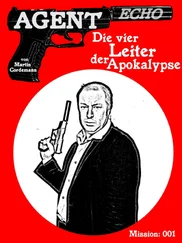A rope ladder hung from the stern when she reached it. She walked from the bow, the length of the hull, unable to believe how weathered and barnacled the boat had become over the course of a single voyage. The wood was scarred and scraped. In places it looked soft and spongy with incipient rot. Patches of her timber smelled waterlogged. She dripped and oozed from a dozen small breaches in her superstructure. Whatever magic had been used to bring her here had taken a terrible toll on the integrity of the vessel. It was as though immense strain had been put on her. She had not travelled willingly. She had been aged and wearied by her perverse trail through a thousand miles of reluctant ocean.
Suzanne climbed the rungs of the ladder carefully to the deck. There was no one there to greet her. She climbed into the open hatch at the stern, down the steps that led to Magnus Stannard’s master cabin. There was a dim, yellowy sort of illumination below, the light cast by oil or paraffin lamps. There was a smell of paraffin. And she saw that the master cabin door was open. She walked into it. And she saw that the rot afflicting the Dark Echo was not confined to her hull.
The cabin walls were hung with mildewed pictures. They were photographs. They were framed black and white prints. Many were so rotted that the image they portrayed had been completely spoiled. But others retained some detail as her eyes adjusted to the gloom. They were everywhere on the walls. She thought there must have been close to a hundred of them. She felt compelled to look more closely.
There was a shot of Spalding sharing a boxing ring with a grinning, hirsute Ernest Hemingway. A sign behind them on the gymnasium wall advertised Caporal cigarettes. There was a shot of Spalding in harsh sunlight holding up a trophy against the backdrop of a brilliant, billowing sail. In black tie and tails, he chatted to a strong-featured woman in a feather boa in front of the wheels of a giant locomotive hewn from ice. Elsewhere he was poised on his toes in a bathing costume, darkly tanned and muscular at the end of a diving board. There was a formal portrait of Gubby Tench, grinning under the ragged rim of hair and bone where the top of his skull had been. His teeth were stained and his eyes were open and he still held in his lap the Very pistol that had ended his life. One photograph showed a headless, limbless female torso puddled in congealing gore on a rubber sheet. A blood-soaked linen towel had been folded neatly beside the corpse. The victim was young and possessed a slender waist and high, pert breasts. The handle of a boning knife protruded from the area just below her sternum. In a landscape shot, three crosses illuminated by the light of burning torches had men in uniforms nailed to them with bayonets, upside down. The bayonets had been hammered to the hilt through their ankles and wrists. The left hand of each man had been hacked off and stuffed in his mouth. Fingers protruded like the scrambling limbs of pale spiders. The expressions on their faces told Suzanne that this work had been done to the men while they were still living.
She began to back away from this image of obscene atrocity, recoiling instinctively, stumbling slightly. Then she stopped. There was a sort of rustling noise over by the bookcase to her right. She did not look towards it.
‘Don’t leave us so soon, Jane,’ a high, harsh voice from over by the bookcase said. And she knew it was the voice of Harry Spalding. He was aboard already.
Suzanne risked a look across the cabin. Spalding wasn’t there. She heard his laughter, a dry and penetrating chuckle devoid of mirth. It was the recording machine. She saw the waxed cylinder on its spindle, saw the handle that had no right to do so on its own, revolving slowly to crank out the words. She heard Spalding’s disembodied laughter again. It was an awful sound.
‘See you soon, Jane. Can’t begin to tell you how much I’m looking forward to it.’
‘Where are you?’
There was a pause. ‘I’ve a suite at the Palace Hotel.’
‘It isn’t there any more. It was pulled down. It was demolished forty years ago.’
‘It’s there, Jane,’ Spalding said. ‘It’s there if you know where to look.’
He slipped between worlds, voyaged through the past in the periods of the boat’s dereliction. After what she had accomplished, she did not think he would be doing it any more after tonight.
She turned towards the door. There was a small brass mirror screwed to the wall to the right of the doorframe. The metal was tarnished and the glass was cracked. But the reflection it showed was rich with glamour and detail.
In the waxy illumination of a dozen or more large candles, Spalding was fastidious in spectacles and cotton gloves and a buttoned, chalk stripe three-piece suit. His hair had been carefully combed and gleamed almost a tortoiseshell colour, groomed with cream or oil. He was standing at his cabin desk unstrapping the fastenings of a circular box made from rich, embossed leather. Its buckles were silver in the candle flames. He undid the last of them. He lifted the lid and smiled. There was no sound. It had happened, Suzanne was sure. But she knew it wasn’t happening now, to her rear. It wasn’t happening now because behind her, the cabin was entirely silent. But she had no doubt it had happened. What she was seeing had occurred.
He placed the lid delicately on the desktop and put a hand into the box. It emerged again, gripping a human head by the hair. Suzanne recognised the heavy-featured woman who had chatted to Spalding wearing a feather boa before the frozen locomotive in one of the photographs on the walls. She no longer had need of her feathers. Her hair was auburn and abundant and her neck ended in a ragged absence. Spalding smiled and turned the head slowly by the hair in the grip of his fist. In candlelight, it still wore the creamy pallor of life. Then he closed his eyes and brought the head close and kissed it passionately on the mouth.
Suzanne dragged her eyes away. She turned round. She saw only the gloom of the cabin. One of the pictures fell from the wall with a decayed thump when it hit the floor.
The mirror seemed to blink, bright and sudden like a camera flash. She looked back into it. She did not possess the will to look away. The scene had changed. Spalding was in evening wear. The cabin was bright under a glittering chandelier. A woman Suzanne thought might be Helen Sykes reclined with a drink on a leather sofa. Yes, it was Helen Sykes. Suzanne recognised the jewellery that had glittered in the soil under the hard lights of the police excavation, adorning Helen’s remains.
Suzanne groaned. Helen faced the mirror in an ivory satin gown. She was blonde and quite stunningly beautiful. No wonder Vera Chadwick had felt insecure, with friends like Jane and Helen around. Her long legs were crossed at the knee. She was laughing at something Spalding was saying, standing to her rear, busying himself with a cocktail shaker. She seemed relaxed and amused, having a good time.
And then he turned and made a remark. And Helen paled and stiffened as though petrified at whatever it was he had said. And in two strides he crossed to her and bent and drew a knife smoothly across her bare throat and just as swiftly recoiled again. He had moved with the speed of a striking snake. Helen’s drink slipped from her fingers. There was a pause when nothing else happened. And then blood engulfed her dress in a purple tide and she brought her hands hopelessly to her throat and her feet thrummed on the cabin floor.
Spalding strolled around to the front of the sofa. He moved more deliberately now. He had taken off his coat. There was a cocktail glass in his hand. There was a towel over his shoulder. He dropped it to the floor and used his foot to move it, mopping the blood. Helen’s legs jerked behind him in spasm. Spalding mopped with the towel under his shoe. He was calmly dealing with the aftermath of the murder before the life had fully drained from his victim. He sipped almost absently from his cocktail glass as he dealt with the mess.
Читать дальше












